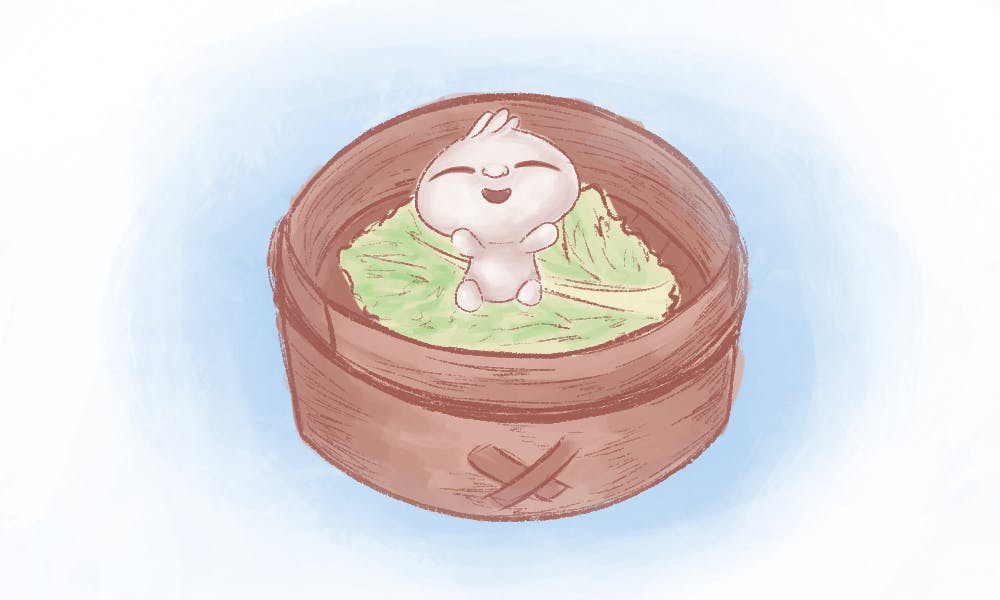When I walked into the theater last summer to see Incredibles 2 with my friends, I had already heard about Bao, the animated short film that accompanied it. After all, it's hard to ignore when your last name appears as the title of a project by a major film studio.
I was excited for the short—which is about a Chinese–Canadian mother with empty nest syndrome and her bao (a traditional Chinese dumpling) who comes to life—as it seemed to be a great opportunity for Chinese culture to be represented on the silver screen. What I did not expect, however, was that when I heard the familiar folksy, traditional Chinese-style soundtrack playing over the darkened theater and the main character appeared, making dumplings and eating them alone, tears instantly fell down my face, and they did not stop for the next eight minutes.
This was, apparently, not an uncommon reaction for those watching Bao.
Throughout the short, the mother is connected to her dumpling–son through food, and culturally–specific foods at that. They pick out vegetables together at the Chinese market and share BBQ pork buns on the bus. As the bao grows up, he begins venturing outside of the activities he does with his mother. When the mother prohibits him from playing soccer with other children (because it dents his doughy head), he shows his annoyance by rejecting her offer of the familiar pork buns.
As many children of immigrants may feel, the food of the cultures that our parents grew up with often hold significant places in our households. Food is not only a way for our parents to share what’s important to them with us: When their children are drawn to the American culture that parents may feel alienated by, food is also how they show their care and love. This is especially true when, for many immigrant parents, saying the words “I love you” is rare.
For me, the most emotional moment of the film was not its pivotal moment (when, spoiler alert: the mother literally eats her bao—son in an attempt to stop him from leaving). It was when the mother, wanting to reach a seemingly–teenaged bao, cooks a feast of traditional Chinese foods (tofus, shrimps, and yes, dumplings), but the bao, ignorant of his mother’s efforts, leaves with his friends instead.
The moment reminded me of the many times when I, after my mom had cooked my favorite dishes, opted to go out and eat pizza with my friends instead. It reminded me of all the ways my parents have tried to connect with me—from my dad’s offers to play mahjong, to the links of Chinese articles that they send me on WeChat.
Growing up in America, I have always craved Asian–American representations in popular culture. Lately, it seems like that dream may slowly be coming true. However, as more glamorous, romantic, and thrilling Asian characters fill up my screens, I welcomed how Bao strives to depict the beauty in the everyday aspects of Chinese culture. Furthermore, as much as I may relate to younger, more Westernized characters, I am incredibly glad that Bao puts someone front–and–center who may have never felt seen in the Western culture before—someone like my mom.
In an interview with The New York Times, the director of Bao, Domee Shi, described the comment of a 9–year–old girl who, after watching the short, told her, “After I watched it I turned to my mom and said, 'you better not eat me after I go off to college.'”
For those of us who grew up with overprotective parents, when we first came to Penn we saw how hard it can be for them to let go. However, Bao shows more than just that. It shows not only our parents’ love for us, but also our love for them. At the end of Bao, the bao returns, and slowly morphs into the mother’s human son, who brings his mother the pork buns that they used to share. The scene reminds us and our parents that, as much as we may want to leave the nest—and as much as we may rebel as teenagers and reject their homemade dinners—we will always come back.
When the credits rolled, some of my friends didn’t understand why I was crying. I wanted to explain to them that in a family like mine—where we don’t say “I love you” to each other as much we should—this film is as close as it gets.







